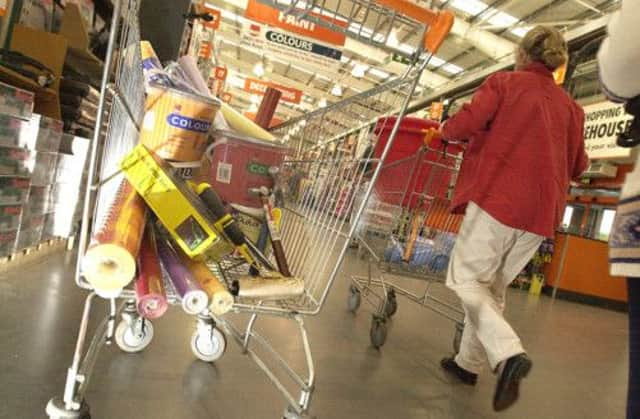Austerity creates nation of frugal shoppers


More than half of Britons said they will only buy something if it is an absolute necessity and are shunning the likes of treats and holidays as austerity bites.
The annual British Lifestyles report by consumer analyst Mintel shows that the legacy of the financial crash is a more cautious, frugal nation – and one less satisfied with their lot. Whereas in 2008, 60 per cent of people said they were perfectly happy with their standard of living, that has fallen to just 50 per cent.
Advertisement
Hide AdAdvertisement
Hide AdPainting a broad picture of our changing spending habits, the report found that 56 per cent of Britons – about 23 million people – only buy items if they are necessary, while more than a third (37 per cent) said they are buying fewer treats.
Just 6 per cent of those surveyed said the downturn has not affected their spending habits.
Analysts said “financial prudence and savvy shopping” was now the norm for many, and the reluctance to spend would have “far-reaching implications” for consumer expectations.
More than a third (36 per cent) of people said things have become more difficult. The same proportion (36 per cent) claim to go on fewer holidays and 17 per cent are working longer hours as a consequence of the faltering economy.
The top three financial priorities for people are keeping up with bills (82 per cent), adding to rainy-day savings (67 per cent), and saving for “big ticket” purchases (58 per cent).
Ina Mitskavets, senior consumer and lifestyles analyst at Mintel, said: “British consumers are adjusting to the new economic reality, with financial prudence and savvy shopping already the default for many.
“The reduced desire to fritter away hard-earned income on ‘nice-to-haves’ will shape retail offerings and will have far-reaching implications for consumer expectations about quality, price, product variety and customer service.”
The report also examines the value of every consumer market covered by Mintel and the impact of consumer spending on market sectors to 2017. Valued at £999 billion in 2012, overall, consumer spending is set to grow a further 17 per cent between 2012 and 2017 to reach £1.17 trillion.
Advertisement
Hide AdAdvertisement
Hide AdResearchers also asked people how they would spend a lottery win of £1,000 and the findings were compared with 2008 when the same question was posed.
In 2013, the top five things Brits would use a lottery win for were a holiday (27 per cent), put aside for a rainy day or an emergency (23 per cent), give it to a family friend (12 per cent), spend it on home improvements (11 per cent), and pay off outstanding bills (11 per cent).
While holidays were also top of the list in 2008 with 30 per cent of the vote, 20 per cent of people said then they would put the money to improving their home, with the change in 2013 indicating how falling house prices has affected the view people have of property as an investment.
Ms Mitskavets added: “The fact that almost a quarter of Brits would put a lottery win aside for a rainy day is perhaps the strongest testament to just how frugal today’s Britons have become, and how entrenched their desire for savings is in the current economic climate.”